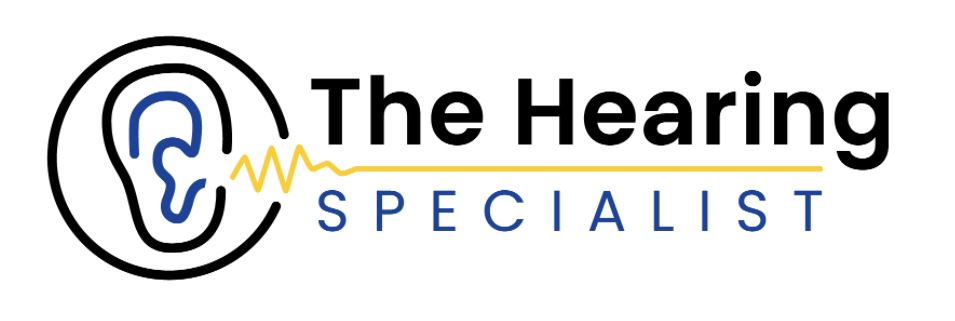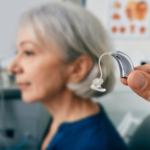If you’ve recently been diagnosed with hearing loss, you might be considering hearing aids as an avenue of treatment. Here’s a guide on hearing aids, amplifiers, and hearing care professionals.
When it comes to hearing aids, amplifiers, and hearing care professionals, there’s a lot of misinformation on the internet that can lead you astray and give you the wrong ideas. When buying hearing aids, it’s important to look past advertising and promises of ‘cheap’ and ‘easy’ solutions. Scams are everywhere, and hearing aid buyers are popular targets. This guide will give you a rundown on how to buy hearing aids, the difference between aids and amplifiers, and the importance of hearing care professionals.
Hearing tests and their impact
Before you make any kind of decision regarding your hearing health, you must get a professional hearing test and examination. Even if you know for a fact that you’re suffering from hearing loss, this test can determine what kind of hearing loss, its severity, and what kind of hearing aid you will benefit from. The results of your audiogram can also be used to tailor a treatment plan if you decide to move forward with hearing aids.
Your doctor or audiologist should be able to give you this hearing exam, and you can take it to a hearing care professional for further advice and guidance. We’ll touch on what hearing care professionals are and how they can help you in a later section. For now, it’s important that you move forward with your hearing test. You should get these fairly regularly, especially if you suffer from sensorineural hearing loss. Our hearing deteriorates over time, so you’ll need to gauge this deterioration and make the proper accommodations.
If you want to get a general idea of your hearing ability without visiting an audiologist, Signia provides a free online hearing test. Whilst this is undoubtedly a helpful indicator, they cannot replace an actual audiogram. If this test indicates that you have hearing loss, it’s recommended that you seek a professional test.
Why hearing aids are better than amplifiers
Before we get to hearing aids, the concept of hearing aid amplifiers needs to be addressed. Despite the name, amplifiers are not ‘hearing aids’ in the slightest. This is a misnomer that leads many people with hearing loss to make unsafe decisions about their hearing.
While hearing aids are designed for people suffering from hearing loss, amplifiers can be used by anyone. Amplifiers boost all sounds, regardless of volume or type. This can be useful for those who wish to hear birdsong or distant sounds, but it can be seriously harmful if used regularly. Because they boost all sounds, it can be like wearing earbuds 24/7, boosting every noise you hear.
Sensorineural hearing loss is caused primarily by noise exposure, and wearing amplifiers can worsen hearing loss by exposing the wearer to high levels of noise. If they are already suffering from hearing loss, amplifiers will exacerbate the problem, not solve it.
Despite this, many scammers advertise hearing amplifiers as ‘cheap’ hearing aids, claiming that they serve the same purpose. This is untrue. Where hearing aids aim to alleviate hearing loss and tinnitus, amplifiers do nothing but turn up the volume on the world around you. This makes amplifiers a waste of money at best, and a dangerous scam at worst.
If you are going to invest in hearing aids, talk to a professional and make the decision wisely. If you’re concerned about the cost of hearing aids, payment plans can be arranged.
Which hearing aids should I buy?
This is a loaded question for many reasons. What constitutes the ‘best’ hearing aids is entirely subjective, and it changes as hearing aid technology progresses. There’s also the matter of personal preference, necessary settings, and things like shape and size. While one person might be completely happy with battery-operated hearing aids with slightly older technology, someone else might need the functionality a rechargeable, Bluetooth-compatible hearing aid offers them.
Because of this, there is no one-size-fits-all hearing aid. Some might find the wide variety frustrating, but it actually means that there are more opportunities to find the perfect hearing aids for you. With the help of a hearing care professional, you can narrow down your choices and begin deciding on what hearing aids will fit you.
In the meantime, we’ll be discussing the importance of weighing cost versus value, and how a hearing care professional can help you pinpoint your needs, preferences, and options during the buying process.
Cost =/= value
If you’ve ever shopped generic or bought a phone with fewer features than your previous model, you probably understand the cost =/= value philosophy well. Sometimes, extra features and an expensive price tag simply aren’t worth the money. This especially applies to hearing aids.
Hearing aid technology has come a long way, but these improvements do come at a price. Newer, more flexible designs like Styletto AX tend to have a higher price bracket, and for good reason. These models are advanced and offer a lot more than a traditional hearing aid. However, if you have no need for Bluetooth capability and rechargeable batteries, you might be unimpressed.
This is completely normal, and there’s no need to buy something that you won’t use. If you don’t see yourself using Bluetooth, or you don’t mind buying or changing batteries, there’s no point in spending extra to get these features. However, if you lead a fast-paced, tech-savvy life, you might benefit greatly from these add-ons.
Choosing a hearing aid is an entirely personal journey. Your preferences and needs are your own. Your hearing care professional can help you sift through your priorities and compile a list of compatible hearing aids in your price range.
Speaking of hearing care professionals, they play a large role in the buying, fitting, and follow-up process.
Hearing care professionals, and how they can help you
When you buy hearing aids on your own, it’s up to you to handle the assessment, buying, and fitting. Most of the time, you end up going to a hearing care professional anyway, since reliable hearing aids require professional fitting. Even then, buying hearing aids on your own can be risky, especially if you go through online stores.
When you enlist the help of a hearing care professional (HCP) from the start, the cost of fitting and follow-up is usually factored into the hearing aid cost. Not only are you paying for your hearing aids, but you’re also paying for someone to help you with the buying process. This includes answering questions, fitting, and follow-up care. Many hearing care providers can also offer trials and other benefits.




